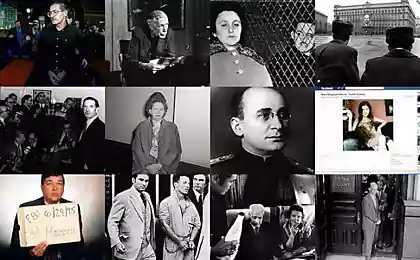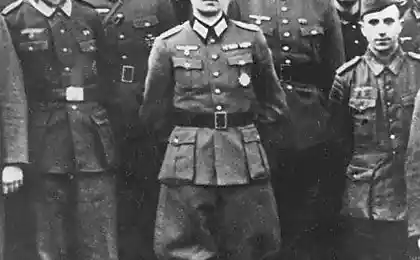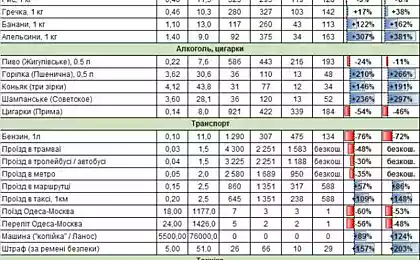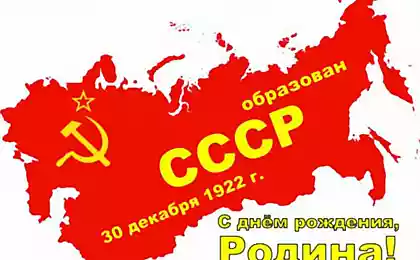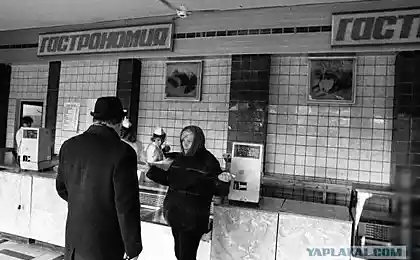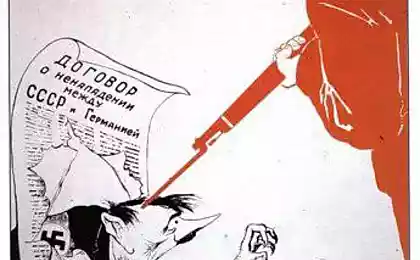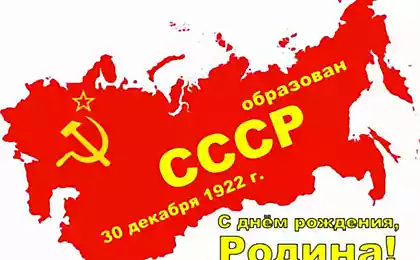934
5 most famous foreign spies working for the Soviet Union (5 photos)
May 11 marks 25 years since he died perhaps the most famous and most important Soviet spy in history - Kim Philby. Anathematized at home in the UK, the ideological communist Philby did his best to guide our country knew all the plans against her in the military and post-war periods. I offer you five of the most significant for our country's intelligence. Just start with Philby and ...
Kim Philby
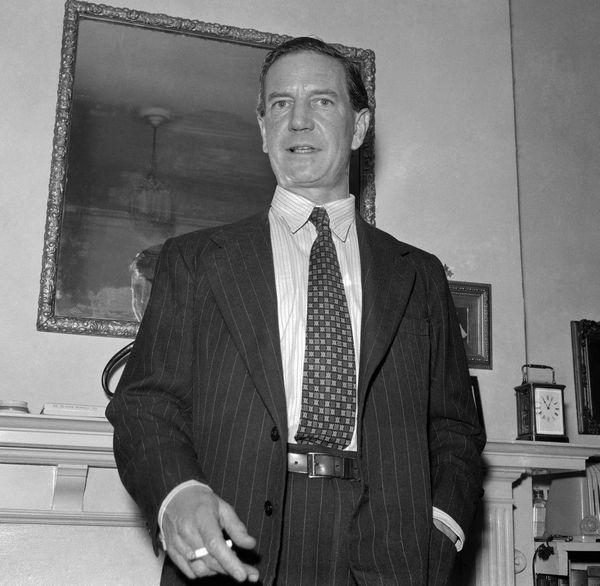
son of one of the most famous British Arabists Harry St. John, a distant relative of the famous Marshal Montgomery took the highest position of all those who have worked for us - since 1941 working as deputy chief of British intelligence. "The biggest mole" in the history of Great Britain, codenamed Stanley smoothly supplying all relevant information Western leadership until the early '50s, when it started to fall suspicion of espionage. Double Life could not remain a secret forever, so representative of the "blue blood", has been working for MI6 in 1963 had to flee to the Soviet Union, where, until his death in 1988 he lived in a modest apartment in Moscow. Of course, before "perestroika" his extradition Britain is not out of the question, and when it came, western sentiments Gorbachev still refused: "Have mercy on an old man." Philby died at the age of 76 years. After 2 years in our country we have been issued postage stamps with his picture.
Donald Maclean
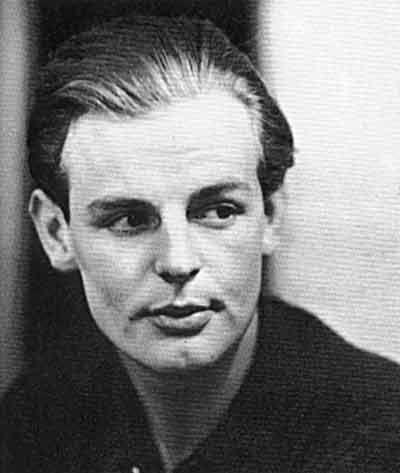
The above-mentioned Philby was in the so-called "Cambridge Five" - the so-called group of senior British who worked in the Soviet Union. Donald McLean was one of five (except for him and Philby were to Guy Burgess, Anthony Blunt and John Cairncross). While working at the Ministry of Foreign Affairs, the greatest benefit of the USSR, he brought in during the Second World War and later. Codenamed Homer he passed many secret documents, minutes of meetings of the Cabinet, and most importantly - the documents relating to nuclear weapons. They played a role in the emergence of similar weapons from us. In the USSR he ran in 1955 and lived in Moscow until his death in 1983. As Philby idealized here before hitting our country. They say that when he was confronted with the reality, he began to drink heavily, but then got rid of this habit. By the way, the actor Rupert Everett (remember the movie "Best Friend's Wedding," "Shakespeare in Love" and Gregory Melehova in the "Quiet Flows the Don" Sergei Bondarchuk?) Is his grandnephew.
Rudolf Abel
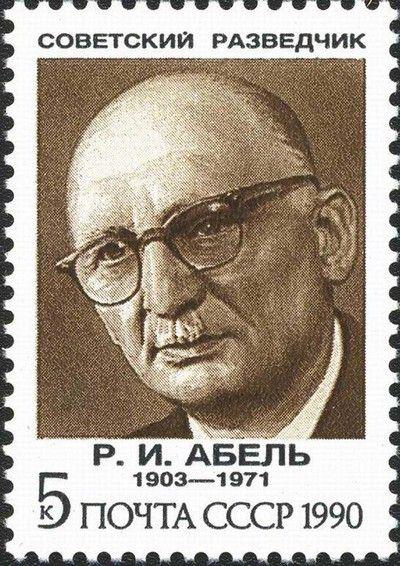
Another Briton, whose real name is William H. Fisher. Without it, the creation of the atomic bomb we would have been impossible. The peak of his activity took place in the post-war period. Living in New York, he led the Soviet intelligence network. Everything was going fine until 1957, when he was assistant to take and hand over of all Americans. Abel was arrested and later sentenced to 32 years in prison. But in 1962 it was exchanged for the American pilot Francis Powers spy, who was shot down over Sverdlovsk region. He died in 1971 in Moscow.
Heinz Felfe
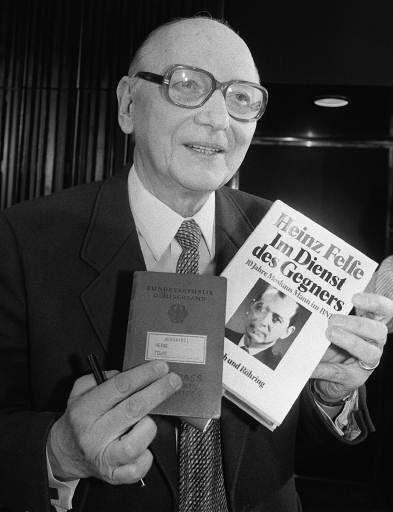
The main Soviet spy in West Germany. Curiously, it was the former SS Obersturmführer, and as a child he was in the Hitler Youth. After the second world he first have worked for the British MI6, and when settled in the German Federal Intelligence Service, he began to work for the Soviet Union and because Felfe in history there was not a single failure of the Soviet intelligence. During the years of service he gave 15 thousand documents and revealed the names of a hundred CIA agents. In 1961, he was arrested and sentenced to 14 years, but in 1969 the KGB exchanged it as much as 21 Western agent. After osovbozhdeniya Felfe worked in Moscow, then he returned to Germany, where he lived until his death in 2008. By the way, shortly before the Russian Federal Security Service sent him greetings on the 90th anniversary.
Richard Sorge
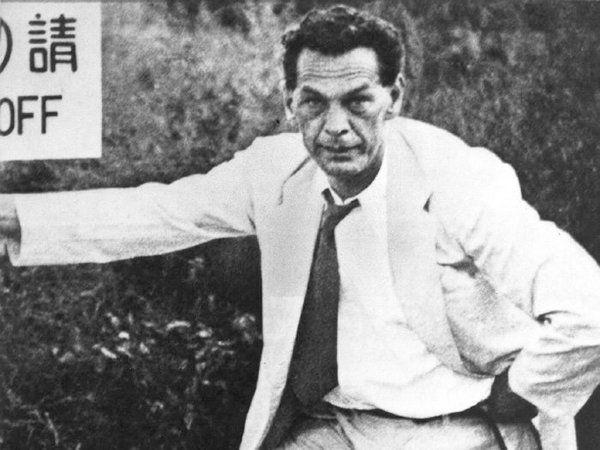
The name of the intelligence officer known to our people the most. Because it is, firstly, the beautiful, and secondly, his life is surrounded with some mystery. You could even say that we have a lot of its mythologized. By the way, the name of the present, and thanks to his father, a German who worked in Baku in the days of Czarist Russia. Even as a child with his family, Richard moved to Berlin, and when approached the age of conscription, then fought for Germany in World War I, for which he earned the Iron Cross 2nd Class.
After the war he joined the Communist Party, but after Germany it became a taboo - moved to the Soviet Union. He was sent to work at first in China, then in Japan under the guise of a correspondent. By the way, where he escaped death. At the end of the 30s in the exploration of the Soviet Union begin cleaning and Sorge summoned by telegram to Moscow, but he just did not execute this order, but continued to supply sensitive information. In 1940, he became the spokesman of the German Embassy in Japan. And it is on this post sent to our country is growing evidence that Germany would attack the Soviet Union exactly. However, his information is not always taken seriously because he constantly called different date of the attack, from March ending June.
In our historiography and culture it is believed that it Sorge said the exact date of the attack - 22 of June. But many believe this is not true and the main feature of mythologizing image Sorge in society. In October 1941 he was arrested and sentenced to death. Adolf Hitler was so shocked that the press attache of the embassy of his country in his country ally accused of spying, had asked Japan to extradite Sorge Germany, but they refused, and in 1944 he was executed. USSR exactly 20 years from Sorge strongly denies that he's our spy, but in 1964 and admitted he was posthumously awarded the Order of Hero of the Soviet Union.
Kim Philby

son of one of the most famous British Arabists Harry St. John, a distant relative of the famous Marshal Montgomery took the highest position of all those who have worked for us - since 1941 working as deputy chief of British intelligence. "The biggest mole" in the history of Great Britain, codenamed Stanley smoothly supplying all relevant information Western leadership until the early '50s, when it started to fall suspicion of espionage. Double Life could not remain a secret forever, so representative of the "blue blood", has been working for MI6 in 1963 had to flee to the Soviet Union, where, until his death in 1988 he lived in a modest apartment in Moscow. Of course, before "perestroika" his extradition Britain is not out of the question, and when it came, western sentiments Gorbachev still refused: "Have mercy on an old man." Philby died at the age of 76 years. After 2 years in our country we have been issued postage stamps with his picture.
Donald Maclean

The above-mentioned Philby was in the so-called "Cambridge Five" - the so-called group of senior British who worked in the Soviet Union. Donald McLean was one of five (except for him and Philby were to Guy Burgess, Anthony Blunt and John Cairncross). While working at the Ministry of Foreign Affairs, the greatest benefit of the USSR, he brought in during the Second World War and later. Codenamed Homer he passed many secret documents, minutes of meetings of the Cabinet, and most importantly - the documents relating to nuclear weapons. They played a role in the emergence of similar weapons from us. In the USSR he ran in 1955 and lived in Moscow until his death in 1983. As Philby idealized here before hitting our country. They say that when he was confronted with the reality, he began to drink heavily, but then got rid of this habit. By the way, the actor Rupert Everett (remember the movie "Best Friend's Wedding," "Shakespeare in Love" and Gregory Melehova in the "Quiet Flows the Don" Sergei Bondarchuk?) Is his grandnephew.
Rudolf Abel

Another Briton, whose real name is William H. Fisher. Without it, the creation of the atomic bomb we would have been impossible. The peak of his activity took place in the post-war period. Living in New York, he led the Soviet intelligence network. Everything was going fine until 1957, when he was assistant to take and hand over of all Americans. Abel was arrested and later sentenced to 32 years in prison. But in 1962 it was exchanged for the American pilot Francis Powers spy, who was shot down over Sverdlovsk region. He died in 1971 in Moscow.
Heinz Felfe

The main Soviet spy in West Germany. Curiously, it was the former SS Obersturmführer, and as a child he was in the Hitler Youth. After the second world he first have worked for the British MI6, and when settled in the German Federal Intelligence Service, he began to work for the Soviet Union and because Felfe in history there was not a single failure of the Soviet intelligence. During the years of service he gave 15 thousand documents and revealed the names of a hundred CIA agents. In 1961, he was arrested and sentenced to 14 years, but in 1969 the KGB exchanged it as much as 21 Western agent. After osovbozhdeniya Felfe worked in Moscow, then he returned to Germany, where he lived until his death in 2008. By the way, shortly before the Russian Federal Security Service sent him greetings on the 90th anniversary.
Richard Sorge

The name of the intelligence officer known to our people the most. Because it is, firstly, the beautiful, and secondly, his life is surrounded with some mystery. You could even say that we have a lot of its mythologized. By the way, the name of the present, and thanks to his father, a German who worked in Baku in the days of Czarist Russia. Even as a child with his family, Richard moved to Berlin, and when approached the age of conscription, then fought for Germany in World War I, for which he earned the Iron Cross 2nd Class.
After the war he joined the Communist Party, but after Germany it became a taboo - moved to the Soviet Union. He was sent to work at first in China, then in Japan under the guise of a correspondent. By the way, where he escaped death. At the end of the 30s in the exploration of the Soviet Union begin cleaning and Sorge summoned by telegram to Moscow, but he just did not execute this order, but continued to supply sensitive information. In 1940, he became the spokesman of the German Embassy in Japan. And it is on this post sent to our country is growing evidence that Germany would attack the Soviet Union exactly. However, his information is not always taken seriously because he constantly called different date of the attack, from March ending June.
In our historiography and culture it is believed that it Sorge said the exact date of the attack - 22 of June. But many believe this is not true and the main feature of mythologizing image Sorge in society. In October 1941 he was arrested and sentenced to death. Adolf Hitler was so shocked that the press attache of the embassy of his country in his country ally accused of spying, had asked Japan to extradite Sorge Germany, but they refused, and in 1944 he was executed. USSR exactly 20 years from Sorge strongly denies that he's our spy, but in 1964 and admitted he was posthumously awarded the Order of Hero of the Soviet Union.








